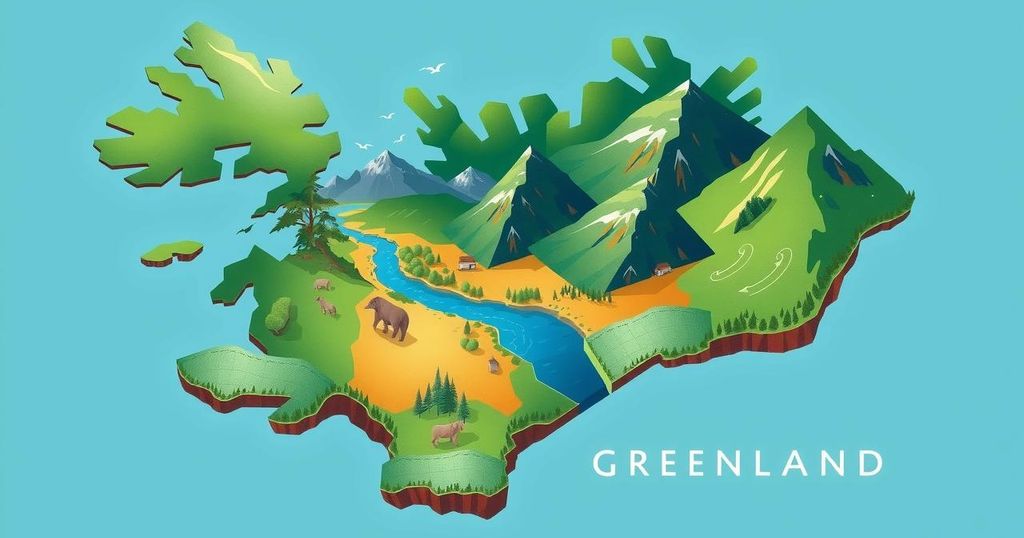Greenland Prepares for Legislative Elections Amidst Independence Aspirations and US Interests

Greenland is conducting legislative elections that may lead to independence from Denmark, with President Trump’s interest in the territory creating mixed reactions among residents. Key parties advocate for self-governance, but their views on timing diverge. Economic reliance on fisheries and Danish subsidies is a pivotal aspect of the independence debate, alongside concerns about foreign influence and Trump’s unpredictable behavior.
Greenland is set to conduct legislative elections, which may pave the way for potential independence, a prospect supported by the majority of its population. United States President Donald Trump’s interest in acquiring the territory has elicited mixed responses from the island’s 57,000 residents, ranging from astonishment to mild enthusiasm.
The election, aimed at selecting representatives for the 31-seat parliament (Inatsisartut), has been characterized by discussions surrounding healthcare, education, and diplomatic relations with Denmark. Greenlanders, predominantly Inuits, express frustration over their treatment by Denmark, the former colonial power.
Key political parties advocate for independence, though they disagree on the timeline. The election’s outcome will determine the balance of power, highlighting the conflict between nationalist factions advocating for swift independence and those concerned with financial stability before pursuing such a move.
Greenland’s economy relies heavily on its fisheries sector, which constitutes most of its exports, coupled with significant Danish subsidies that account for roughly 20% of its GDP. Supporters of immediate independence argue that the island’s untapped mineral resources, essential for sustainable technologies, could bolster its economic independence; however, challenges remain due to geographical obstacles and infrastructure deficits.
President Trump’s previous attempts to purchase Greenland have been met with outright rejection from Danish and Greenlandic authorities. Recently, he reiterated his interest, suggesting that Greenlanders could benefit financially by aligning with the United States and offered an invitation to them,
Polls indicate strong resistance among Greenlanders, with 85% opposing Trump’s acquisition proposal. While some view Trump’s comments as advantageous for independence negotiations, his unpredictable behavior has also alienated segments of the population, causing some to favor ongoing ties with Denmark.
Concerns have been raised by Denmark’s intelligence agency about potential foreign influence in the elections, particularly from Russia. Political analysts assert that Trump’s interference may have polarized the established political discourse but is not anticipated to significantly influence the election results.
The upcoming elections in Greenland serve as a crucial juncture in its quest for independence amid mixed reactions to U.S. President Trump’s interest. With the local populace largely in favor of self-determination, the balancing act between financial readiness and independence remains a contentious issue. While Trump’s proclamations may offer leverage for some factions, they also pose challenges by polarizing public opinion. Ultimately, Greenland’s future trajectory hinges on the election outcome and its ability to navigate international relations effectively.
Original Source: www.france24.com






